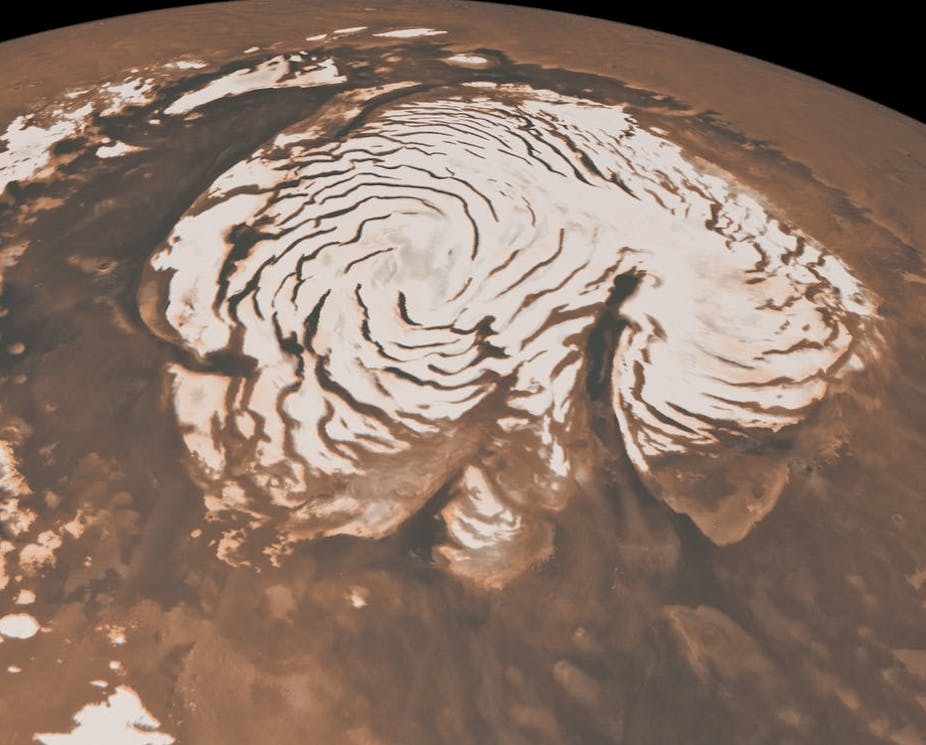The Mars Ocean Theory
The Mars Ocean Theory.
The Mars ocean Theory is a compelling hypothesis suggesting that ancient Mars may have once harbored vast oceans, covering significant portions of the planet’s surface. This theory is rooted in a combination of geological evidence, climate models, and observations made by space missions that hint at a very different Mars than the cold, arid world we see today. If true, this theory would dramatically change our understanding of the planet’s history and its potential to support life.
Scientists have long debated whether Mars could have supported liquid water in the past, especially considering that the planet’s surface is now dry and its atmosphere is thin. However, a growing body of evidence points to the possibility that Mars was once much warmer and wetter, with conditions that could have allowed oceans to form. The key to this theory lies in the planet’s early history, when Mars was likely warmer due to a more substantial atmosphere and a stronger greenhouse effect. During this period, liquid water may have existed in large bodies, possibly covering up to one-third of the planet’s surface.
Evidence that supporting The Mars Ocean Theory
The primary evidence supporting the Mars Ocean Theory comes from the planet’s topography, mineral deposits, and signs of ancient riverbeds. Images from NASA’s Mars rovers, orbiters, and landers have revealed channels, valleys, and delta-like features that resemble those found on Earth where rivers once emptied into oceans. These signs suggest that water flowed freely on the surface at some point, carving out these features. Additionally, the discovery of certain minerals on Mars, such as clays and sulfates, indicates that liquid water was present in the past because these minerals typically form in the presence of water.
One of the strongest arguments for an ancient Martian ocean comes from the northern hemisphere of Mars. The region is much lower in elevation than the southern hemisphere, and its surface is marked by a large, ancient basin. Some scientists propose that this low-lying area was once a massive ocean, with the basin serving as the ocean’s floor. Evidence of ancient shorelines, including cliffs and terraces, further supports the idea that water once stood at these elevations, providing a visual marker of where the ocean may have been.
In addition, computer models of Mars’ early climate suggest that it could have been warm enough for liquid water to exist for extended periods. The presence of a thick atmosphere in Mars’ early history might have created a greenhouse effect strong enough to maintain temperatures above freezing, allowing liquid water to flow across the surface. Over time, however, this atmosphere likely thinned, possibly due to the loss of the planet’s magnetic field, which would have left Mars vulnerable to solar winds that stripped away much of its atmosphere.
Another key point in the Mars Ocean Theory is the idea that the planet’s climate could have changed drastically over time. While the early Mars might have been habitable with liquid water and even a stable climate, the loss of its atmosphere and a subsequent cooling of the planet could have caused the water to evaporate or freeze, leaving behind the barren landscape we see today.
If Mars did indeed have an ocean, it opens up intriguing possibilities regarding the potential for past life. Where there is liquid water, there is the possibility of life, and some researchers suggest that microscopic organisms could have lived in these Martian oceans. While no direct evidence of life has been found, the discovery of organic molecules on Mars by various missions, including NASA’s Curiosity Rover, further fuels speculation that life might have once existed.
The Mars Ocean Theory offers an exciting glimpse into the planet’s past, suggesting that Mars may have once been a more hospitable world with vast oceans. The evidence supporting this idea, while still debated, points to a Mars that was not always the cold, dry planet we know today. Understanding the history of water on Mars is not only crucial for comprehending the planet’s evolution but also for guiding future missions that may search for signs of ancient life on the Red Planet.
Also Visit-
Nepal – A Place You Should Visit Once in a Lifetime.
Mutated Indonesia tribe to genetically adapt to being 230 feet underwater
